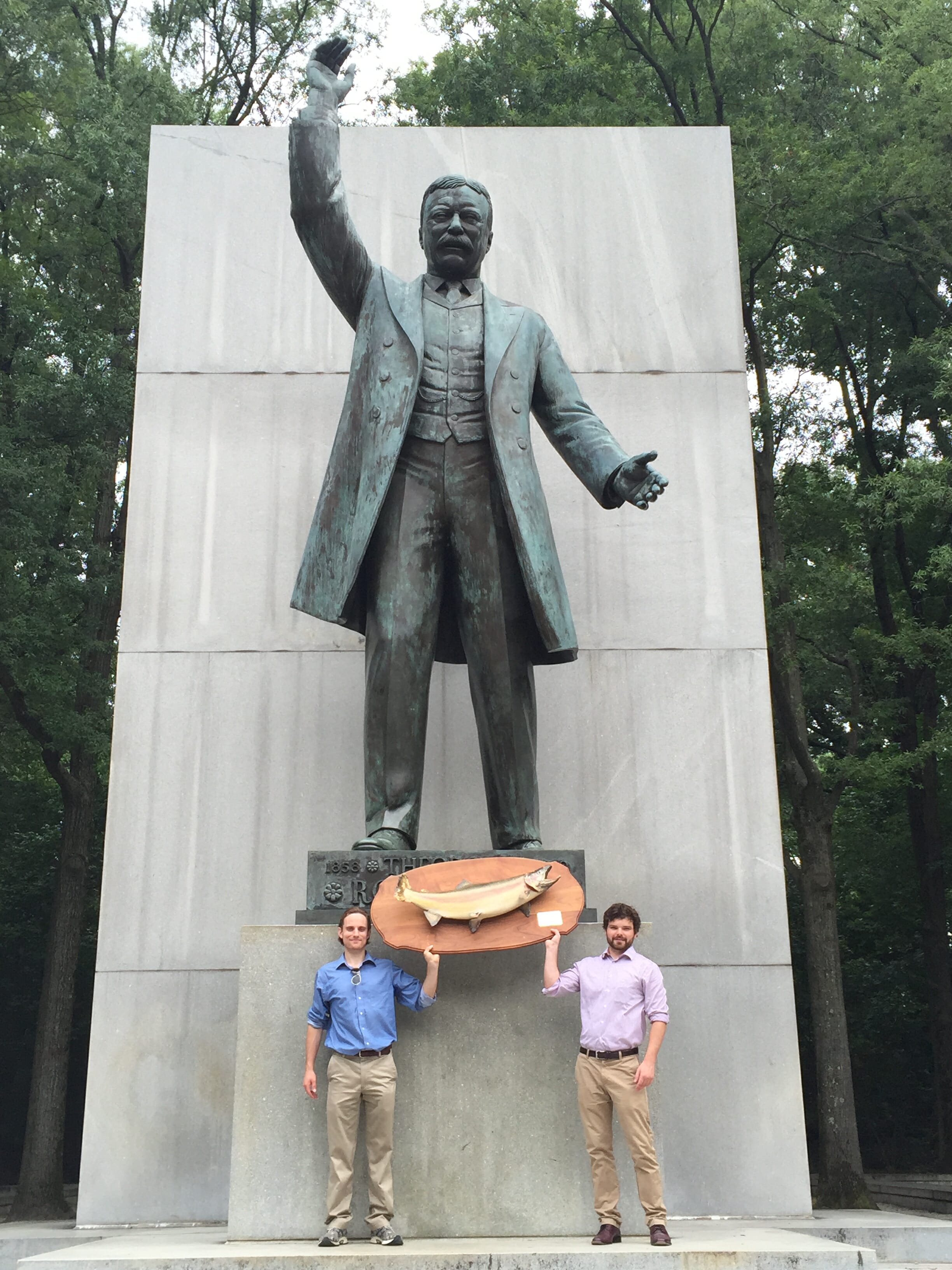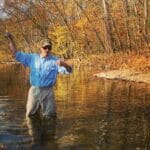
I have owned three suits in my life. The last one I bought was a classic seersucker to officiate at the outdoor wedding in Augustin Atlanta of my friends Neil and Mara (until that afternoon, I did not know one could sweat through a tie). The second was for my own wedding—a white linen suit, the pants of which I spilled a glass of red wine the only night I wore it. The first one my parents gave me upon graduation from college (in my Dad’s words, so I could “find a real job”).
I wore my parents’ suit to 33 informational interviews trying to break into the “environmental field.” I was a clueless kid with a BA and a background in making ice cream and helping coachhigh school football. I didn’t know what I wanted to do; I just wanted to “save the salmon.” The 33rd interview was with American Rivers who promised me “meaningful work with no pay.” I will always be grateful for American Rivers for helping me to find my footing in conservation, and I try to carry that sentiment forward today. So, if a young woman or man call for counsel or want an internship at TU, I always take the call, and will try to help the intern.
We have anywhere from 5-10 interns at the national office of Trout Unlimited every year. The interns are so much more organized and focused than I was at their age. This year, we had students from a local high-school, and others from Michigan State, Notre Dame, Yale, and Hobart and William Smith Colleges. They provide important, and sometimes essential, work helping us to monitor important hearings on Capitol Hill, research policy, help the finance team, and take on administrative tasks.
Over the years, many TU interns have gone on to do important work in the White House, the Department of Interior, the Department of Agriculture, conservation organizations, state fish and wildlife agencies, Congress, and even Trout Unlimited. For example, Corey Fischer, who directs our western energy workfrom Montana, was an intern in 2004. And Keith Curley, who today directs all of our eastern conservation work, interned for me soon after I started at TU in 2003. Kate Miller was a TU intern in Oregon in 2004. Today she’s the deputy director of government affairs and works on important conservation issues all over the country from our Arlington, Va. office.
We have a few fun intern traditions. Steve Moyer, who is Kate’s boss and directs our government affairs work, often takes them to a National’s game, or for a ride on his “Floating Hokie,” an odd craft that sits on barrels. We may also try and get them out on the Potomac or another-local water for an afternoon of fishing. This summer, we only managed an hour on the water before thunderstorms rolled in.
The best tradition is when the interns will take a now dog-eared 25 pound cast of a mounted steelhead given to TU by the Washington Council in 1976 to a national monument or otherplace of historic significance in the Capitol. The only rule is they must take public transport, and they must take pictures.
Many of us in the conservation field began our careers as interns. It is a great way to determine if you “hear the calling,” and to learn about how non-profits work. TU is deeply indebted to these young men and women for the contributions they make, and even more excited about how their experience at TU may help them to make the world a better place in the future. They help us understand how out-of-touch we are with new music, fashion, and the latest jargon. But in a very real sense they are the future of conservation.



